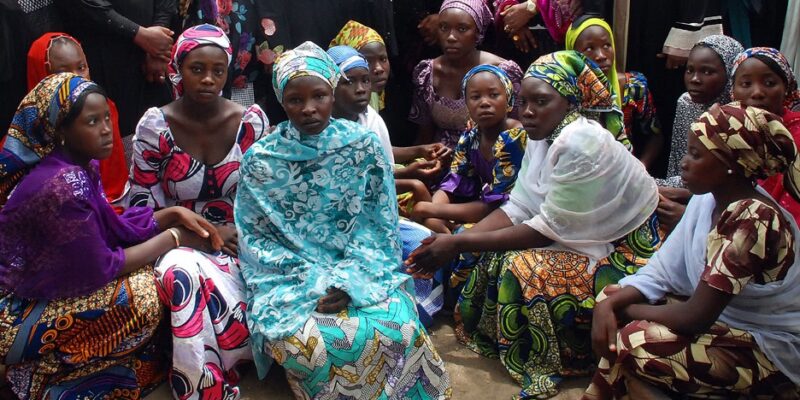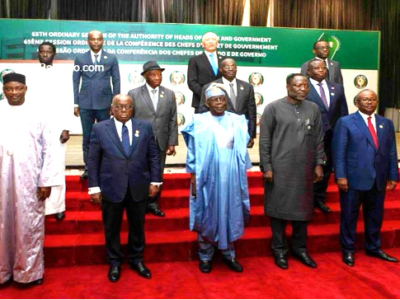Introduction
Boko Haram’s terrorist activity has plagued Northern Nigerian states, including Adamawa, Borno, and Yobe, since 2002. This terrorist organization predominantly targets younger generations due to poverty and youth unemployment, while also harming, kidnapping, and killing women and girls . Moreover, Boko Haram uses extreme religious preaching to radicalize individuals, particularly youth, against Western democracy, education, the global liberal agenda, and the Nigerian government. Boko Haram has killed around 50,000 people and displaced more than 2.5 million since its establishment. The organization also instrumentalizes women, using female-led attacks to differentiate itself from similar organizations. In response to the terrorist threat, Nigeria has deployed both hard and soft approaches, aimed at combatting Boko Haram and its operations. One of the soft approaches is the Military de-radicalisation programme which involved the re-integration of repentant Boko Haram militants into society. Over time, Nigeria has shifted its military deradicalization tactics to non-military methods, including negotiation, amnesty, disarmament, reintegration, and empowerment. This approach focuses on creating an environment that discourages radicalization and destroys conditions that facilitate it. However, these tactics have overlooked the differing roles and needs for the deradicalization of women.
This article argues that failing to address the unique experiences and roles of women in Boko Haram within Nigeria’s deradicalization policies and initiatives limits the effectiveness of responses to the group. The article seeks to move beyond essentializing women into a single homogeneous category and proposes opportunities for a nuanced understanding that would assist in reconceptualizing and creating programmes and initiatives. In this regard, this article critically deconstructs the differing roles and uses of women in Boko Haram and critique the current policy in Nigeria and how it fails to include a gender-sensitive approach to deradicalization. Following this, the article explores gender-sensitive policy alternatives and the importance of incorporating women in peacebuilding processes.
Women in Boko Haram
Before understanding the importance of a gender-sensitive deradicalization process for Boko Haram, it is essential to recognize the role of women within the organization. Structural inequalities such as poverty, economic dispossession, lack of state processes, patriarchy, and corruption are central to the recruitment of women into extremist groups. Boko Haram exploits the patriarchal system in northern Nigeria, based on orthodox Shari’a interpretations, further marginalizing women through religious, legal, and social structures, limiting their civic and economic rights. Financial incentives often persuade women to join out of desperation, while some join willingly for revenge, particularly widows. However, most women in Boko Haram join through forced conscription and abductions. Nevertheless, the view of women as agents has been persistently problematized. The inability to discern between coercion and forced association due to benefits and structural conditions presents a significant issue in addressing why women join Boko Haram. Therefore, women’s complex experiences must be considered as distinct entities within deradicalization processes.
Boko Haram’s gendered terrorist strategy commodifies, instrumentalizes, and weaponizes women, making them both agents and victims of violence. Operationally, women enhance group cohesion, carry out attacks, increase reproductive capacity, sustain control in camps, and serve as bargaining chips with the Nigerian government. For example, abducted girls are ‘married’ to increase group cohesion and consolidate loyalty. The UN reported severe wartime sexual violence against women in Boko Haram, including sexual slavery, rape, forced pregnancy, and forced prostitution. Rape is used not only as punishment or torture but also to produce the next generation of militants . Women have also been used in suicide bombings and as human shields since 2014. Furthermore, Boko Haram strategically uses women as bargaining chips, such as in 2015 when they abducted women and children to negotiate with President Goodluck Jonathan. Nevertheless, evidence shows women willingly and actively engaging in violence, such as shooting at Nigerian soldiers during rescue operations, indicating their allegiance. This demonstrates that women are not only victims but also play an increasingly important role in Boko Haram’s tactical operations, whether willingly or unwillingly. Therefore, a gender-sensitive understanding of the fluctuating role between agency and victimhood is crucial to comprehending the distinct functions of women in Boko Haram and informing deradicalization policies and initiatives.
Nigeria’s Policies and Initiatives on Deradicalization
Boko Haram instrumentalizes the feminization of violence to achieve its agenda. However, Nigeria has gaps in addressing these gendered differences. Three core deradicalization policies and initiatives for Boko Haram members currently exist. At the governmental level, two key deradicalization programs have been developed. First, the Prison Program focuses on individuals awaiting trial for violent extremist offences. This program uses Imams to educate individuals on a non-violent understanding of Islam to reduce the risk of rejoining Boko Haram, and it includes vocational training centres. However, women are rarely detained and put on trial due to the perception of women as only victims in times of conflict. In the 2017 and 2018 Boko Haram trials, out of 200 members, very few women were prosecuted, with many being minors and acquitted. This trend reflects the tendency to see women mainly as victims, despite evidence of their involvement in violence.
Second, Operation Safe Corridor is a Nigerian military initiative that provides trauma counseling to address extremist ideologies among defectors. However, these initiatives have been critiqued by some lawmakers due to insufficient consultation on their implementation and development. Additionally, these programs have failed to include the role of women within the group, consequently rendering them invisible. For example, Operation Safe Corridor does not admit women due to conservative cultural and religious norms in Northern Nigeria that impede close interaction and association among genders. Thus, the Nigerian government’s strategies assume that integrating women into their pre-Boko Haram lives is sufficient. The exclusion of women from government-led deradicalization programs further marginalizes them post-Boko Haram.
Third, the Yellow Ribbon Initiative, operated by the Neem Foundation, provides reintegration support and psychosocial therapy to young women and children affected by Boko Haram, aiming for empowerment. This initiative underscores the need for gender-sensitive deradicalization processes. However, it also highlights the government’s failure to see women beyond the victim framework, reproducing normative discourses that depict women as a homogeneous group of passive victims. While acknowledging that women are disproportionately affected by conflict, it calls for a nuanced understanding of the insecurities women face and their roles in perpetrating violence, whether willing or unwilling. Consequently, women may continue to exploit this invisibility by working with Boko Haram, putting themselves in danger and continuing Boko Haram’s aims.
Gender- Sensitive Deradicalization Process
This article suggests three mutually reinforcing propositions ranging from structural shifts to more practical and immediate initiatives. Centrally, the protection and empowerment of women should go beyond deradicalization programs to prevent radicalization and ensure sustained peace. Deconstructing Northern Nigerian patriarchal structures, such as removing barriers to employment, finance, and social participation for women, would be the first recommendation to return agency to women. Okech’s fieldwork discovered that Boko Haram’s attractiveness is partly based on the power women receive when joining the group. In practice, the architecture of reintegration and deradicalization processes need to account for the sociocultural structures women return to, including the loss of financial and social power. Therefore, the first recommendation is to address the root causes of gendered inequalities and disparities, including socioeconomic barriers, in the region at a governmental policy level to prevent women from returning to Boko Haram after the realization that they do not possess the same level of power when reintegrated into society.
Informed by this nuanced understanding, the second recommendation lies in developing gender-sensitive policies and initiatives that officially acknowledge women’s complex and differing roles to overcome the victim/terrorist dichotomy. This intersectional underpinning is backed by research on women in Boko Haram, which shows that factors such as age, class, and reproductive capacity affect their power and responsibilities within the organization. Therefore, deradicalization interventions and policies must move beyond essentializing women into a single isolated category and instead recognize their varying experiences.
Third, a more practical and tangible recommendation includes the implementation of a women-focused, multifactorial, and systematic programmes paired with localized deradicalization efforts that account for Northern Nigerian cultural practices and customs. For instance, creating initiatives such as Operation Safe Corridor for women, providing a government-led, deliberate strategy that acknowledges women’s roles and experiences in Boko Haram, ensuring sustained peace in Northern Nigeria. Other women-focused initiatives could include women-led and facilitated deradicalization and peace processes, not because women are perceived as inherently peaceful, but to allow agency and ensure they do not reoffend. To do so, increasing women’s representation in these initiatives would ensure that their experiences are integrated, addressing their interlocking vulnerabilities and preventing radicalization. Importantly, these recommendations should not be implemented in isolation, but rather are optimized by their symbiotic development and implementation.
Looking into the Future
Overall, this article has explored the critical need for gender-sensitive deradicalization processes to effectively counter Boko Haram’s impact in Northern Nigeria. Moreover, it has evaluated the importance of recognizing the multifaceted and complex roles of women within the terrorist organization to move beyond the simplistic victim/terrorist dichotomy. A key finding of this article is that Boko Haram exploits women through extreme patriarchal structures. Here, women have differing motivations and roles they play within the organization, which require tailored interventions that acknowledge women’s varied experiences.
Another central takeaway is that Nigeria’s current policies and initiatives at both governmental and civil society levels are limited because they exclude women’s unique needs within current Nigerian deradicalization policies. This finding is reinforced by the example of the Prison Program and Operation Safe Corridor, which rendered women invisible in post-conflict recovery efforts. Moreover, the Yellow Ribbon Initiative demonstrates the potential for gender-sensitive approaches, yet, as a civil society initiative, it highlights the government’s limitations in framing women solely as victims.
To enhance deradicalization efforts, the article finds that officially acknowledging women’s diverse roles, developing multifactorial but also localized programmes parallel to Operation Safe Corridor, and addressing root inequalities that contribute to radicalization, are central in gender-sensitive deradicalization processes. Future areas of study should include fieldwork and consultation with deradicalized women to understand their experiences and develop adequate policies and initiatives. By doing so, the Nigerian government can create more effective and gender-sensitive deradicalization strategies, ensuring stability and sustained peace in Northern Nigeria.
Author

Alba Andres Sanchez
Disclaimer: The views expressed in this publication are those of the author and not necessarily those of WANEP. While every attempt has been made to ensure that the information published is accurate, no responsibility or liability is accepted for any loss, damage or disruptions caused by errors or omissions whether such errors or omissions result from negligence, or any other cause.








Comments